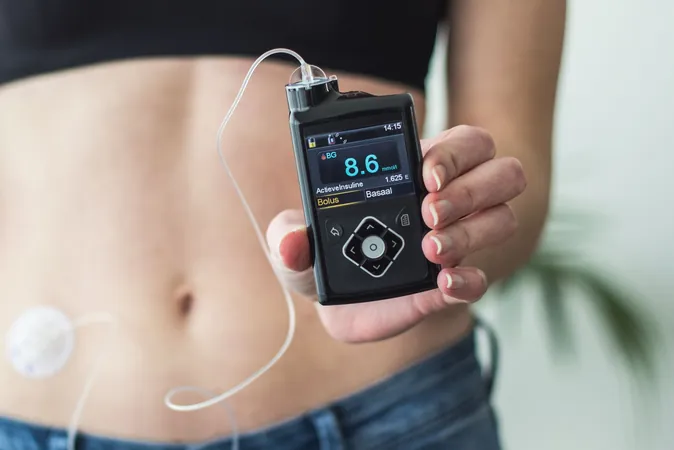
Breakthrough Study Reveals Automated Insulin Delivery Safe for Seniors with Type 1 Diabetes!
2025-03-14
Author: Daniel
In a groundbreaking development, researchers have confirmed that automated insulin delivery (AID) systems can be safely and effectively utilized by older adults with type 1 diabetes (T1D). The findings from a study published in NEJM Evidence challenge the long-held belief that advanced medical technology might be too complex for older patients who have relied on multiple daily injections for decades.
Naomi Chaytor, the study's principal investigator and chair of the WSU Elson S. Floyd College of Medicine Department of Community and Behavioral Health, noted, “It’s a significant transition for individuals accustomed to traditional methods of diabetes management, but our results show that older adults adapted well to these innovations.”
AID systems are increasingly recognized as a preferred treatment option for managing glucose levels, with real-world data indicating similar average outcomes for patients in various countries. Yet, significant disparities exist in access to diabetes technology based on age, gender, and racial background, as highlighted in recent diabetes research articles.
Historically, clinical trials focused on AID technologies had insufficient representation of older adults, leading to a gap in understanding their effectiveness for this demographic. The recent multicenter, randomized, crossover trial specifically addressed this limitation: it included 78 participants aged 65 and older diagnosed with T1D who were willing to use AID systems across three intervention arms involving hybrid closed-loop systems, predictive low-glucose suspend systems, and sensor-augmented pumps.
The primary objective of the study was to measure the time spent with glucose levels below 70 mg/dL during AID usage. Secondary outcomes covered hypoglycemia incidences, overall glucose control, and hemoglobin A1c levels. Results demonstrated that each system showed promising efficacy, with the hybrid closed-loop system leading to 8.9 percentage points more time in the target glucose range compared to the sensor-augmented pump.
Interestingly, participant feedback revealed that users perceived AIDs to be just as easy to navigate as traditional non-automated devices. Even those with mild cognitive impairments were able to manage the AID systems effectively.
However, it's crucial to note that onboarding older adults onto these systems may require more time and effort compared to younger individuals. Chaytor emphasized the importance of healthcare providers being prepared for this initial commitment to ensure that older patients feel comfortable and competent in using new technologies.
As diabetes centers and healthcare professionals consider implementing AID systems into their protocols, this study offers a hopeful outlook that advanced treatment options can become more inclusive and beneficial for older adults living with type 1 diabetes.
Imagine a life where managing diabetes becomes simpler for millions of older adults - this study ignites hope for a healthier future!



 Brasil (PT)
Brasil (PT)
 Canada (EN)
Canada (EN)
 Chile (ES)
Chile (ES)
 Česko (CS)
Česko (CS)
 대한민국 (KO)
대한민국 (KO)
 España (ES)
España (ES)
 France (FR)
France (FR)
 Hong Kong (EN)
Hong Kong (EN)
 Italia (IT)
Italia (IT)
 日本 (JA)
日本 (JA)
 Magyarország (HU)
Magyarország (HU)
 Norge (NO)
Norge (NO)
 Polska (PL)
Polska (PL)
 Schweiz (DE)
Schweiz (DE)
 Singapore (EN)
Singapore (EN)
 Sverige (SV)
Sverige (SV)
 Suomi (FI)
Suomi (FI)
 Türkiye (TR)
Türkiye (TR)
 الإمارات العربية المتحدة (AR)
الإمارات العربية المتحدة (AR)